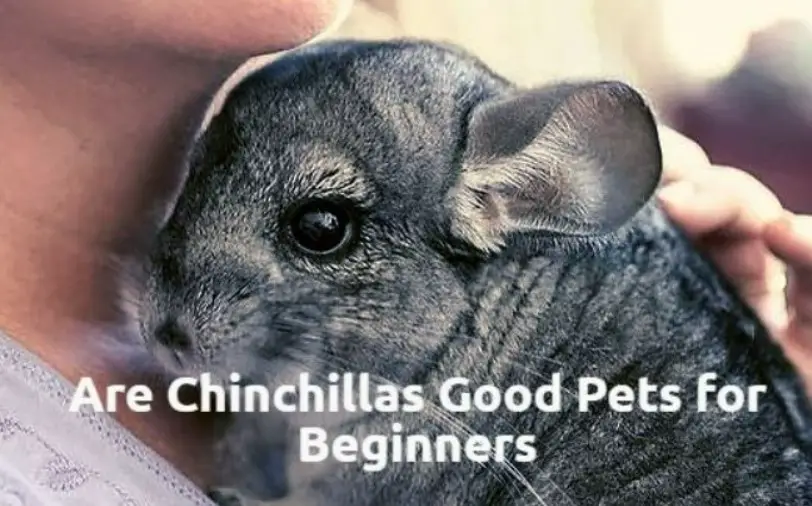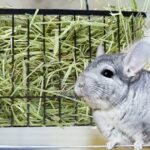Are Chinchillas Good Pets for Beginners: Chinchillas (Chinchilla lanigera and Chinchilla chinchilla) are small, rodent-like mammals native to the Andes Mountains of South America. They have become popular pets due to their adorable appearance, soft fur, and playful nature. However, it’s important to understand their unique needs and characteristics before bringing one into your home.

Are Chinchillas Good Pets for Beginners?
Chinchillas can make delightful pets while they require specific care and attention. They have unique needs related to their housing, diet, temperature, and handling. If you’re a Chinchillas can be good pets for beginners under the right circumstances. However, it’s important to understand their unique needs and characteristics before deciding to bring one into your home. Here are some factors to consider:
How Much Time Should You Spend With Your Chinchilla
Lifespan and Commitment:
Chinchillas have a relatively long lifespan of 10-20 years when cared for properly. They require a significant commitment of time, effort, and resources. Ensure you are ready for the responsibility and prepared for the long-term care of a chinchilla.
Nocturnal Nature:
Chinchillas are crepuscular or nocturnal animals, which means they are most active during the night and early morning. This can affect the interaction and bonding you have with them, especially if you are primarily available during daylight hours. However, they may adjust their activity patterns slightly to accommodate their owners.
Housing Requirements:
Chinchillas need a spacious and secure cage or enclosure that allows for exercise and exploration. The cage should have multiple levels, platforms, and ramps for climbing and jumping. It should also have solid flooring to prevent foot injuries. A cage size of at least 2 feet by 2 feet by 3 feet is recommended for a single chinchilla.
Temperature and Humidity:
Chinchillas are highly sensitive to heat and humidity. They thrive in cooler environments with temperatures ranging from 60-70°F (15-21°C). High temperatures can cause heat stress and even be fatal to chinchillas. It’s important to keep them in a cool and well-ventilated area, away from direct sunlight and drafts.
Dust Baths:
Chinchillas have dense fur that requires regular dust baths to stay clean and healthy. They cannot have water baths as it can damage their fur and cause skin problems. Chinchillas should have access to a suitable chinchilla dust bath at least a few times a week. This allows them to roll and coat their fur with fine dust, which helps absorb oils and remove dirt.
Diet and Chewing:
Chinchillas have a unique digestive system and require a specific diet. The foundation of their diet should be high-quality grass hay, such as timothy hay, which provides essential fiber for proper digestion. They should also be offered limited amounts of specially formulated chinchilla pellets and occasional treats such as dried fruits or chew sticks. Freshwater should always be available.
Fragile and Shy Nature:
Chinchillas are delicate animals and can be easily injured if not handled properly. They have fragile bones and can jump or wriggle out of your hands, potentially resulting in falls or injuries. It’s important to handle them gently and securely, supporting their bodies and minimizing stress. Due to their prey animal instincts, chinchillas may be initially timid or skittish around humans. Patience and gradual socialization are necessary to build trust and a bond with them.
Veterinary Care:
Finding a veterinarian experienced in treating exotic pets, specifically chinchillas, is crucial. Regular check-ups are important to monitor their overall health and address any potential issues promptly. Chinchillas are prone to dental problems, respiratory issues, and gastrointestinal disorders, so having a knowledgeable vet is essential for their well-being.
While chinchillas can make enjoyable pets, they may require more care and attention than some other small pets. If you’re a beginner, it’s recommended to do thorough research, consult with experienced chinchilla owners, and be prepared to invest time and effort into understanding and meeting their specific needs.






